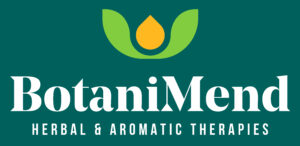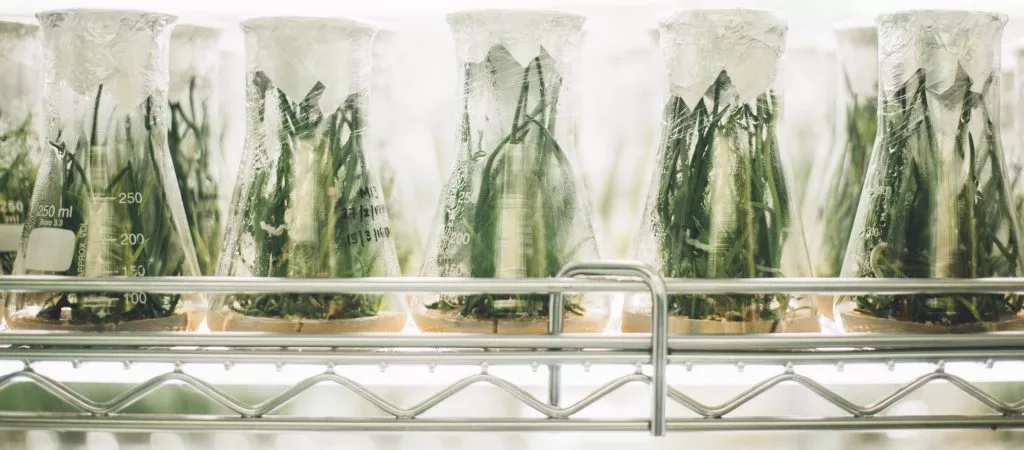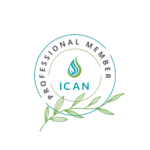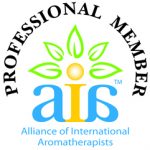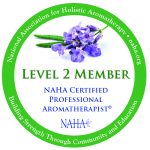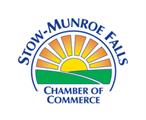As with any other modality, there is a trend that has gained steam and popularity in aromatherapy and aromatic medicine. It is a trend that hit herbalism many years ago and has since faded. This trend is the question of the validity of empirical evidence vs scientifically researched evidence as a determination of the efficacy of aromatics. There are many in the aromatherapy community that are really pushing the scientifically researched evidence so strongly as to almost completely shut out the empirical. In many ways, this push has been so hard that it has become a “fad” within aromatherapy to either minimize or flat out disregard the importance of the empirical in favor of the scientifically researched.
As mentioned above, herbalism went through this trend many years ago, losing its main focus and suffering the discarding of the empirical. The trend became so prolific that it caused some damage to the knowledge base of the empirical in practice. However, herbalism has righted itself again and has been able to find a balance, and rightly so.
History
Like herbalism, aromatherapy has in most recent history been on the fringes of the world of healing modalities; and in many ways much more so. Herbalism has been practiced for thousands of years, and in its most recent history was the main healing modality in the 1800s. With the coming of the new century, herbalism began to wane as an accepted healing modality with the advent of modern pharmaceutical medicine which created the allopathic branch of medicine. The push for allopathy through modern pharmaceuticals was so strong that by the 1950s the idea of even turning to such an “archaic” modality such as herbalism was severely frowned upon. The allopathic system does not accept herbalism or aromatherapy as anything other than “archaic” and no longer useful. In fact, the use of these modalities is considered both reckless and dangerous; and any practitioner of allopathy who also indulges in the use of any form of herbalism or aromatherapy is in serious danger of losing their license; and likely will.
As time has marched on, herbalism and aromatherapy remained on the fringes. But very recent history has pushed herbalism and aromatherapy from the fringes farther to the forefront of healing modalities. As a result of this, herbalism and aromatherapy both have sought to “legitimize” themselves among the scientific/allopathic communities, envisioning acceptance. Years ago, herbalism attempted to legitimize itself into acceptance, pushing scientific research ahead of empirical evidence, causing empirical evidence to be ignored and fall out of practice in some circles; and aromatherapy is beginning this process now. There is such a push to legitimize aromatherapy as an accepted modality to the allopathic community that it is also beginning to push the scientific above the empirical. This trend is quite alarming.
The Role of Empirical Evidence
The body of empirical evidence among herbalism’s history is large. Although one can go all the way back to ancient times, the 1800s saw herbalism as the main modality for treatment of illnesses and ailments; doctors did not have modern day pharmaceuticals. There were many publications that came about as a result of practices with herbal remedies. Much of this included not only diagnosis, but also outlined treatments for various conditions that worked quite well. Knowledge of herbs and the actual practice of using them was recorded for posterity. But diagnosis in the past did not focus on disease as allopathy does; it instead focused primarily on energetics.
Energetics sounds to many like so much “woo woo”, but in fact it has been quite well established as a very powerful indicator of the one’s state of health. Energetics is not some construct steeped in mysticism, but rather a legitimate way of determining health state. It is actually quite scientific in nature, helping to determine the terrain of an individual, the state of imbalance a patient might be experiencing, where that imbalance lies, and what to do about it. The use of hot/cold, damp/dry, and lax/tense is quite evident sometimes by simply looking at a person. The tongue is a very important indictor of where the imbalance might be occurring, and the pulse is a good indicator of how deeply entrenched the imbalance might be.
Diagnosis of imbalances rather than diseases was the tool of times past. It still remains in herbalism today. In many cases, practitioners are utilizing these techniques along with some functional medicine techniques such as blood work to help them track down the imbalances, giving them a good place to start when treating clients.
As previously mentioned, in herbalism much of this empirical evidence has been written down for posterity. The recording of this practice has shown a history of proven uses and remedies for various ill health conditions. This, however, is not the case with aromatherapy and aromatic medicine. It was not until very recent history (about the last 40 years) that actual useful information about the use of essential oils has come into publication; and most of the publications have been since the 1990s. Although aromatherapy has a long history of use, it is mostly in the form of hydrosols (the aromatic waters collected after distillation). Steam distillation has been around for centuries, but the essential oils collected were rarely used; most often discarded. The hydrosols or “aromatic waters” were the preferred tools of aromatic medicines.
However, there is a good-sized body of publications on the use of essential oils and hydrosols in place today; not as large as herbalism, but still a respectable size. Most of these publications are based upon empirical evidence. The actual practice of using these aromatics and seeing results for various illnesses and imbalances has been recorded for posterity. This empirical evidence has given practitioners great successes in treating client heath imbalances. As with herbalism, the bodies of work have shown historical proven use as effective. But like herbalism many years ago, aromatherapy thirsts and hungers for something more; it seeks to legitimize itself through scientifically research-based evidence.
The Role of Scientifically Research-Based Evidence
The role of research in the medical communities has been important one. Peer-reviewed legitimate scientific research is the gold standard in allopathy. For most allopathic physicians if there is no scientific research there is no legitimacy. Empirical evidence is not even a consideration. For allopathy, research is of the utmost importance because drugs that are developed have no historical track record of success or failure. Trials must be performed in a very methodical way so as to “cause no harm” because there is a greater chance of toxicity. Drugs are based on single-component chemistry. Often the isolation of the chemical components of plants previously researched for their properties is the jumping off point for pharmaceutical research and development. The science community is rarely interested in the whole plant.
For many years scientific research has been performed on plants in both the herbal world as well as the aromatherapy world. Unfortunately, much of this research has focused on plant components rather than on the whole plant; or on certain components of plant extracts such as essential oils, rather than on the whole extract itself. This has led to many publications concluding that a plant or plant extract is toxic when it reality it is one component that has shown properties of toxicity. In addition, much of these revelations have been based on in vitro studies and on animal studies, most often at levels far above what any human being would ever be administered. Furthermore, of the studies that have focused on the efficacies of aromatic extracts such as essential oils, the controls have very seldom ever been very well thought out to ensure there is no placebo effect. The good news is that there are those in the aromatherapy community that are working hard to create better studies which take into account better controls; but this is very much in its infancy.
There can be no doubt that legitimate scientific research is very important to both the herbal and aromatherapy communities; it can often provide better insight into why a particular treatment works the way it works. This research can offer those communities a plethora of new information that can be taken into account when treatment plans are being developed; and it most certainly should continue.
Empirical Evidence Is Far More Important Than Scientifically Research-Based Evidence
Given the history of empirical evidence compared to scientifically research-based evidence in both herbalism and aromatherapy, it is important that practitioners give preference to empirical evidence. As previously mentioned, there is a myriad of strong historical documentation regarding both herbal and aromatherapy treatment; a proven track record of the uses of various herbs and aromatics, as well as the outcomes of those treatments. There can be no doubt as to their efficacy. None at all. These treatments have a strong history of use and successes and/or failures. Yet, there are those that are so caught up in the scientific that they treat the empirical as “not enough”
Scientific research on various plants, plant components, whole plant extracts, etc. is not the end-all-be-all as some like to purport. If there is a long track record of the efficacy of various herbal and/or aromatic remedies, then those must be trusted first and foremost. There is no greater evidence than that which has been shown to have efficacy by practice. For much of the history of herbal and aromatic medicine, there has been little to no scientific backing; frankly, what works has been established by observation and practice. It has always been an interesting question as to why the plants and plant extracts work the way they work, but it has also been “good enough” for many practitioners to see them do their healing work.
Frankly, it is hardly necessary for herbalists and aromatherapy/aromatic medicine practitioners to be caught up in scientifically researched evidence to practice effectively. History has shown them the way. For practitioners, empirical evidence is enough; and rightly so. What works, works. It is only in curiosity’s sake that scientific research comes into play; and its place is in a secondary role. Empirical evidence comes first because it is experience-based. Observation and practice trumps scientific research every single time. Again, what works, works; and there is no denying it.
Can’t We All Just Get Along?
However, this is not to say that scientific research is not important and has no place in herbalism and aromatherapy; it most certainly does. However, its role is solely secondary. Scientific research does not “legitimize” herbalism or aromatherapy. On the contrary, it simply verifies what is already known.
There is a misnomer that empirical evidence is not scientific. This is an erroneous position that is taken by hardliners who require everything to have published scientific studies to take anything seriously. The fact is, science by definition has as its basis the observation of results that are verified over and over again. Given the history of herbalism and aromatherapy, and their track record, it is quite clear that the empirical evidence is quite scientific. The recorded evidence is the best scientific evidence in existence because its efficacy has been proven on actual human beings, not in a Petri dish or on animals; and it has been reproducible many times over.
The reality is there is a need to strike a balance. Ignoring scientific studies altogether is to be willfully ignorant, and puts one in a position of ignorance with regard to information that could indeed be helpful in practice. Ignoring empirical evidence puts one at a complete disadvantage. There is a saying in the culinary world “mise en place.” This means “everything in its place.” This is a core tenant of chefs and is engrained into them at the very beginning of culinary school. The idea is not only that everything has its place, but more importantly that everything should be its in place before beginning the cooking process — all prep work should be completed before there is any cooking. The same is true of practice. We put everything in its place in our education. We make sure we have all the right tools in place before we begin practice. Furthermore, the same needs to be true of how we view empirical vs scientifically researched studies. We need to put empirical studies in their place and scientific research studies in their place; and because there is more true scientific evidence in the empirical and that empirical is fully reproducible, it is necessary to put the empirical first. As mentioned above, the role of scientific research studies is secondary to our practices. It often does not have peer-performed evidence of reproducibility. Furthermore, it does not “legitimize” the empirical; it merely verifies.
A Final Word
It is imperative that the aromatherapy community understand that it does not need to try so hard to be considered “legitimate”; it already is in many, many ways. It is not lost on the author that in order to be accepted in the allopathic community it is necessary to have so called “science-backed” research studies to be taken seriously; and this drives much of the trend of “scientific” legitimization attempts. The question is “why is it so important to be accepted by the allopathic community?” The answer is that it is not necessary at all. Why? Because those who seek herbal and aromatic treatments are going to seek herbalists and aromatherapists; and those that seek allopathic treatments are going to seek allopathic physicians. Furthermore, in practice, it is really not that hard to work with most allopathic physicians simultaneously; most of them will work alongside you. They realize they cannot do it all, so they do what they do; and herbalists/aromatherapists do what they do. They are our partners in client care much of the time. They specialize in their field, and we specialize in ours. There is a place for each.
Because of this, there is simply no reason to concern ourselves with legitimizing. If we are working with allopathy, then we can present them with the empirical evidence we have if they are interested (and, frankly, most of them are not). The only reason why they often require so called “science-backed” research studies is if they themselves want to authorize our practice as a part of their treatment plan; and that because they could lose their license if they don’t have a very good reason for adding such “archaic and dangerous” modalities into their treatment plans without that evidence.
There is a time and a place for both scientifically research based studies, as well as empirical evidence anchored in history. Both of them serve legitimate roles in our practices. However, while one has a proven track record and is based on the use of the whole plant and/or plant extracts, the other is more often than not rooted in single-constituent science. It is necessary to understand the place of both and how both apply to our practices. In herbalism and aromatherapy, the empirical is the cake; scientific research-based studies are simply the icing. The icing always seems to taste the best and it is tempting to treat it with the utmost importance, but the cake supplies the substance and foundation; and without the cake the icing would never be necessary anyway.
